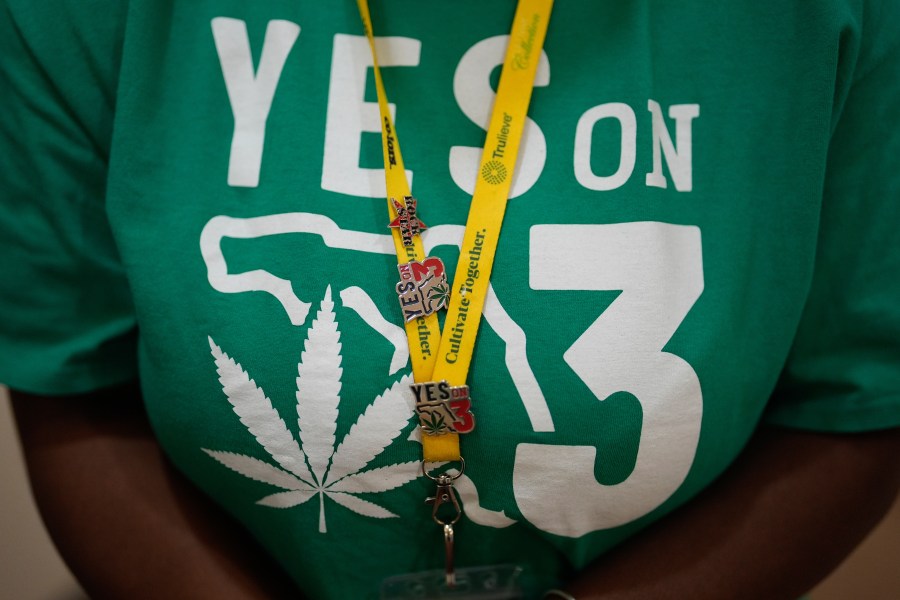
TALLAHASSEE, Fla. (AP) – Florida’s recreational marijuana legalization movement is suing Republican Gov. Ron DeSantis’ administration in the state’s highest court, accusing state election officials of unfairly trying to block the measure from starting on the 2026 ballot.
It’s the latest escalation in a years-long conflict between progressive organizers seeking changes to the state constitution and the conservative governor, who has used state funding and political influence to successfully campaign against efforts to legalize adult personal use of marijuana and expand abortion rights in 2024.
In a petition filed Thursday, the group Smart & Safe Florida alleges that state officials “failed in an undisputed legal duty” and asked the Florida Supreme Court to order state election officials to ensure the campaign collected the hundreds of thousands of voter petitions needed for voting eligibility.
Smart & Safe claims it has collected more than three times as many petitions as required by law, but state election officials have not formally confirmed the milestone for months. Although this formal confirmation is procedural, it is legally required to submit the amendment to the state attorney general, who must then ask the state Supreme Court to review the ballot language.
“As reflected in Defendants’ own published data, the initiative petitions at issue here secured three times the number of verified, valid petitions required statewide,” the campaign’s filing reads.
“Ignoring undisputed facts and their clear legal obligations, Defendants refuse to exercise their mandatory ministerial duties,” the complaint continues.
With the 2026 election season just around the corner, campaigns are racing toward the April 1, 2026 deadline for the state Supreme Court to approve the amendment, a key step in bringing the issue before voters.
A spokeswoman for Secretary of State Cord Byrd, who is named in the lawsuit, said the Florida Department of State does not comment on pending litigation. Representatives for Mr. DeSantis referred questions to the department.
Medical marijuana is already legal in the state for qualifying patients after Florida voters approved a 2016 constitutional amendment, expanding access to cannabis beyond the limited therapeutic uses previously approved by Congress.
Florida voters have long turned to the referendum initiative process to bypass the Republican-controlled Legislature and advance progressive policies like raising the minimum wage and restoring voting rights to people with felony convictions.
In May, Mr. DeSantis signed legislation that created new hurdles for citizen-led voting efforts, changes that critics say will make it prohibitively expensive and virtually impossible for grassroots activists to get to the polls. Since the law’s passage, the movement to expand Medicaid in the state has announced that efforts to put the issue on the ballot will be delayed until 2028.
Members of the DeSantis administration are also under fire after the Florida Human Services Initiative Foundation, led by first lady Casey DeSantis, donated $10 million from state settlements to two nonprofits, which in turn donated millions to a political committee campaigning against the failure of a 2024 recreational marijuana ballot measure. The political committee was chaired by James Usmayer, then the governor’s chief of staff and now Florida’s attorney general.
___
Kate Payne is a corps member for the Associated Press/Report for America Statehouse News Initiative. Report for America is a nonprofit national service program that places journalists in local newsrooms to report on undercovered issues.

